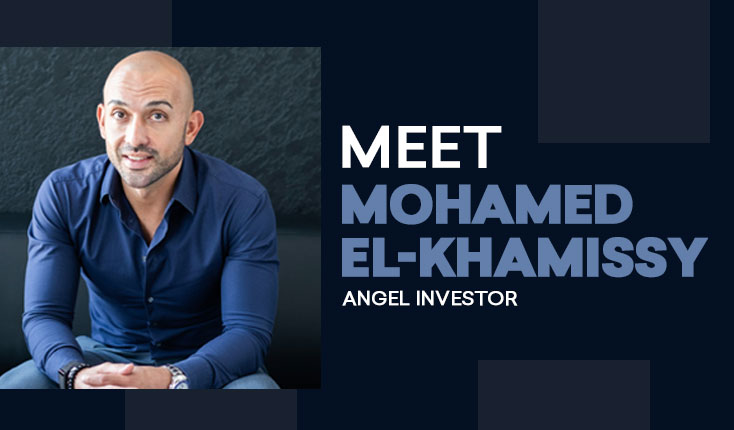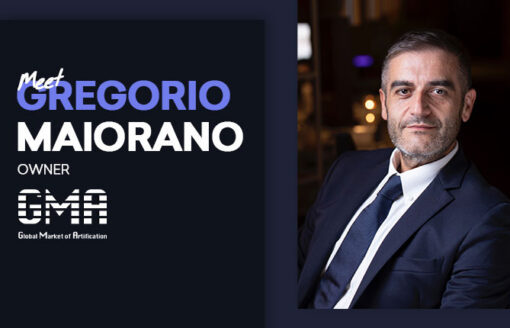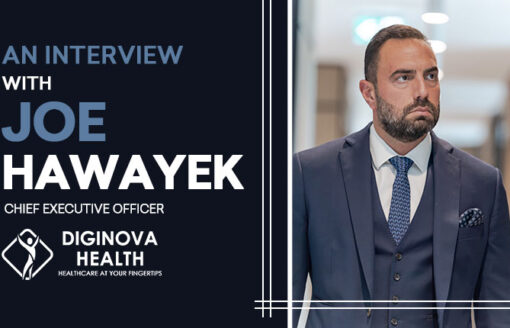Given that the COVID-19 crisis has reshaped business trends around the globe, Egypt is witnessing a shift in business doing with more inclination to depend on technology and online solutions.
In an exclusive interview, Mohamed El-Khamissy, a well-known angel investor who invests in early stage businesses with a special focus on healthcare businesses, shares with Ahram Online his thoughts on Egypt’s business environment and the potentials the market has to tap amid the crisis.
Anram Online: How far is the COVID-19 crisis a potential for entrepreneurship in the MENA region?
Mohamed El-Khamissy: We cannot deny the fact that the world will change dramatically after the COVID-19, and this includes both consumer behaviour and market needs.
Accordingly, startups and business owners should start looking at re-strategising their business models and adjust their approaches to meet the changing needs of the consumers and pivot the business models as per the changed industry dynamics.
And this is where innovation comes in. The spread of the virus has essentially altered the supply-demand dynamics of many industries, including tourism, ticketing, restaurants, and many more, and the only way to get through this would be to find innovative ways to offer their products or services.
In addition, entrepreneurs and startups should follow a sustainable business approach where all the resources, particularly monetary resources and funds, should be used consciously. Business owners have to focus on their financial management and they shouldn’t rush into raising new investments post crisis although investors will eventually start investing in the short term, it would take a long time for anyone to close their investment calls.
From an investor’s point of view, we will look for tech players.
What is the case in Egypt?
We have seen over the past decade that Egypt has witnessed an entrepreneurial transformation, with a growing number of support organisations, emerging policy focus, and numerous government and donor support programmes.
A report was recently published on the entrepreneurship environment in Egypt and it showed that the Egyptian society’s perception of entrepreneurship is high and continues to grow.
Despite the current global economic challenges, the report highlighted the important role entrepreneurship could and should have in Egypt’s economic recovery, and this could be achieved as more and more people become interested in pursuing entrepreneurship and entrepreneurs are given the attention and support they need.
One of the key highlights of the report is that more than 73 percent of Egyptians think entrepreneurship is a good career choice. While more than 30 percent of Egyptians deviate from starting a new business due to fear of failure, 46 percent of Egypt’s adult population is able to recognise good market opportunities for new businesses.
Another key finding from the report is that only one out of every four entrepreneurs in Egypt is a woman, which is significantly lower than the global average. And I personally believe that the role of women entrepreneurs is key for the socio-economic development of Egypt.
Which sectors do you expect to witness a boom in their business and deals on the medium and long terms?
One of the industries that is expected to witness a change is the “workspace” industry. The normal office work environment has changed in the past few months when most of the employees had to work from their home, meetings are being done over video conferencing and low Internet speed is a regular cause for the delay in task completions.
While a number of companies were already providing work from home facilities, the majority of businesses were not ready for this sudden shift. Those organisations have seen a drop in their productivity and a delay in their projects and as a result they have been trying to adopt different digital tools to better manage their operations.
This increase in the demand for these tools has worked as a catalyst for some firms to develop work from home solutions and will open up new opportunities for tech and data security startups.
Education is another industry that has seen a dramatic shift amid the crisis. Digital education has experienced new growth where most of the schools have tried different online teaching platforms to suit their requirements.
The healthcare, sub-industries, and medical-adjacent companies will also see many changes and will still have to deal with the fallout.
Useful tools that use artificial intelligence (AI) also are needed to manage the backlog after the virus.
Many expectations asserted the growth and boom that the healthcare business will witness because of the COVID-19 implications; how do you see that?
As we move forward with new approaches to healthcare and new needs for infrastructure and service, “new doors” into healthcare are starting to open and become more widespread. Analytics can inform locations (both virtual and physical) that are good candidates for care site expansion.
This includes retail pharmacies, as the trend towards one-stop shopping, pharmacies are picking up a lot of the primary interactions with patients and are growing to provide even greater healthcare services.
On the other hand, social distancing during the pandemic has made virtual face-to-face calls more acceptable to both clinicians and consumers.
With the spread of COVID-19, people in Egypt will tend to use this service if available to them to avoid being infected by the virus.
For Egypt, how do startups that focus on providing healthcare services benefit from the ongoing crunch?
As people become more comfortable with using health tech services in response to the pandemic, there is likely to be a surge in telemedicine, remote monitoring, and home testing in the coming period, in addition to a spike in digital therapeutics and mental health companies in the second half of 2020.
One mental health company has already seen a surge in demand is the Egypt-based Shezlong which registered a 31 percent increase in therapy sessions booked on its platform from February to March, alongside a rise in the number of psychiatrists looking to join its platform since the start of the outbreak.
What are the challenges this kind of business faces?
There are still several challenges facing the Egyptian entrepreneur, ranging from regulatory bureaucracy to a lack of available funding, especially following early stage investments which, in turn, creates a talent retention problem.
There are many foreign companies and investors wishing to penetrate the Egyptian market because of the massive consumer base in Egypt and a population of over 100 million people and a youth population comprising over 20 percent of the total population.
We have seen a number of startups growing in the past few years such as Fawry, an e-payment network that serves over 15 million Egyptians. In 2015, the founders sold a majority stake in the company for $100 million.
Within seven short years, it reached a level of growth that attracted higher level investments from private equity firms and development financial institutions such as the International Finance Corporation (IFC), the investment arm of the World Bank.
Instabug, a service that helps app developers test their application, has raised over $2.1 million from high-profile international investors and it worked with top apps such as Lyft, Soundcloud, Samsung and Buzzfeed.
Wuzzuf, a recruitment platform, also has employed 250,000 people through its platform and raised over $8 million, while Vezeeta, a medical platform which serves around 4 million patients across 6 countries by connecting them to a network of 30,000 doctors, has raised around $63 million.
These companies have shown that Egypt has great potential to introduce innovative leaders in fields where it has identified service gaps that are waiting to be filled by the private sector.
What is behind their success in the Egyptian market?
The right environment was available, encouraging those startups to grow.
In the last few years, the entrepreneurship ecosystem had expanded massively starting from incubators and accelerators to angel investors and venture capital firms to knowledge sharing and mentorship programmes including Flat6Labs and AUC Venture Lab, which help entrepreneurs realise their concepts and turn them into workable businesses, while funds such as Algebra, A15, Endure Capital, and Cairo Angels finance early stage investments.
The Egyptian government has also tried to fill in some of the gaps in the ecosystem by founding Falak Startups and creating Egypt Ventures, an investment fund that finances both start-ups and other investors.
Do you believe that technology and digitalisation will drive the new normal that has been imposed by the COVID-19?
Absolutely. With many people quarantined in their homes, digital experiences matter more than ever.
For Egypt, even before the pandemic, online shopping was growing at a rapid pace due to a young, tech-minded, population, but retailers still relied on physical storefronts for the majority of their sales to middle-aged shoppers.
Amazon, Souq, and Jumia have reported a massive increase in the number of online shoppers, who purchase all kinds of commodities, including groceries, cleaning products, and even toys.
How can start-ups in the Egyptian market tap this opportunity?
It is crucial for companies to improve their customer experience and digital channels including online marketing, sales and communication channels, not only in retail, but also in sectors such as insurance, banking and healthcare.
Companies should make rapid improvements to those channels, starting with eliminating bottlenecks and prioritising increasingly important customer relations such as late payments, cancellations and moves to online service.
How do you see the future of doing business and startup business in Egypt?
The ecosystem in Egypt is rapidly evolving and has seen significant growth in the past few years following the 2011 revolution.
Egypt is an ideal place to offer young entrepreneurs a suitable environment to experiment and develop their ideas, and we clearly see this potential and commitment.




















































